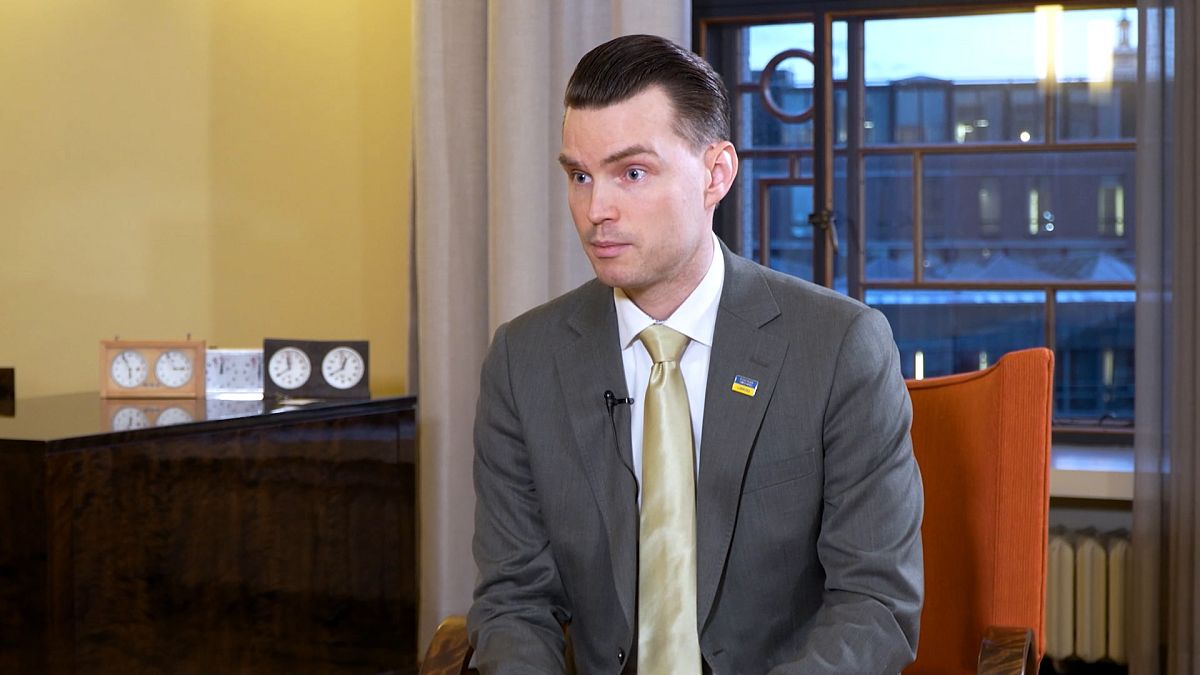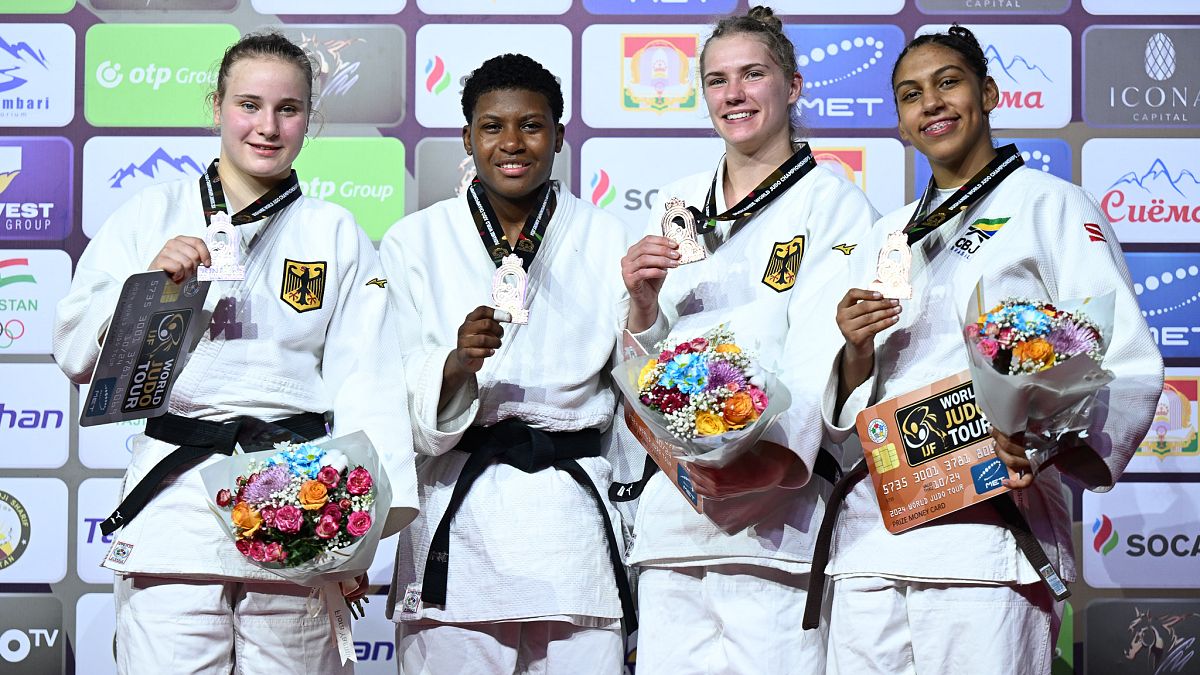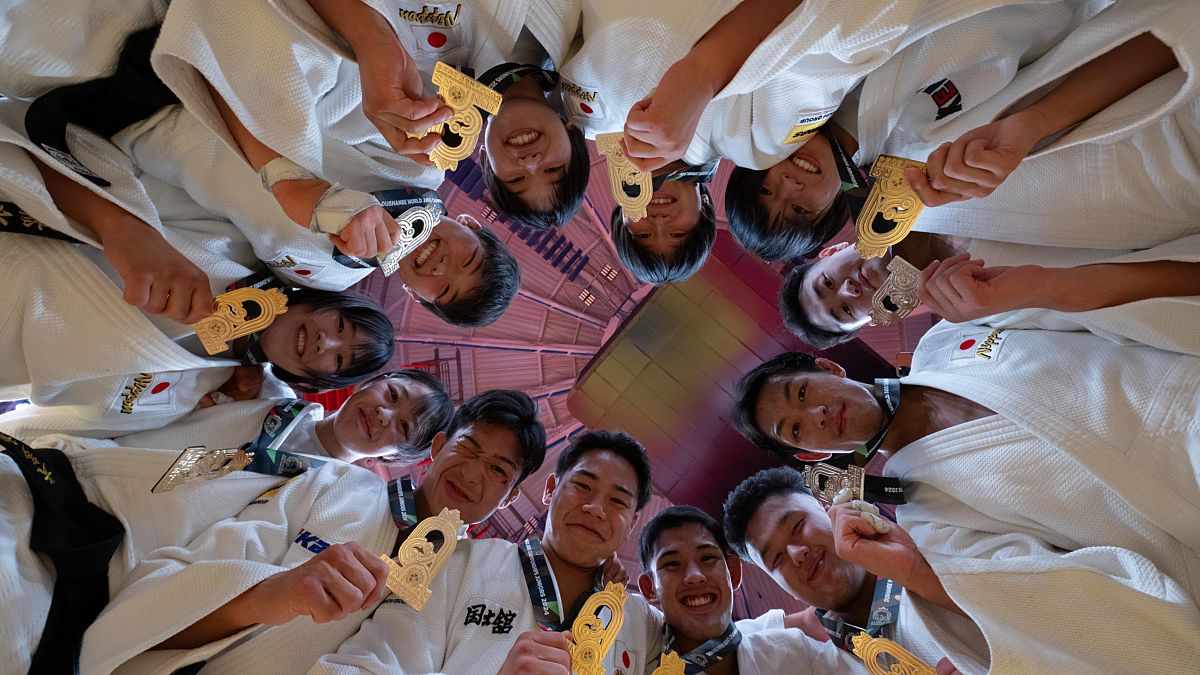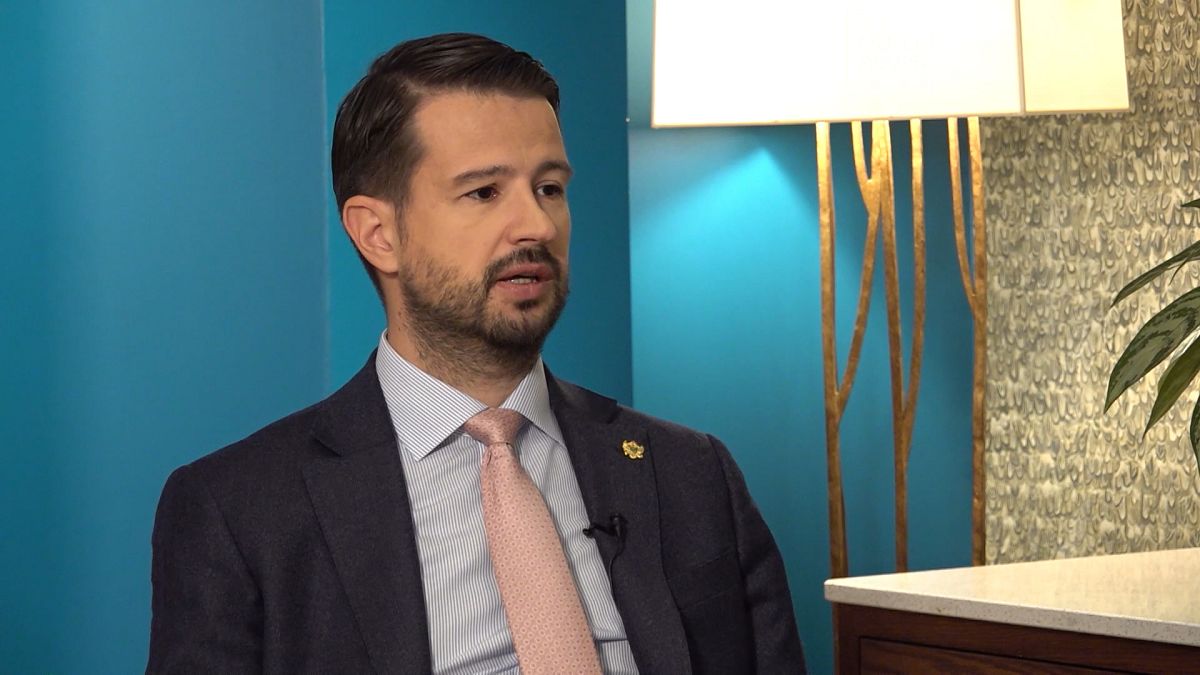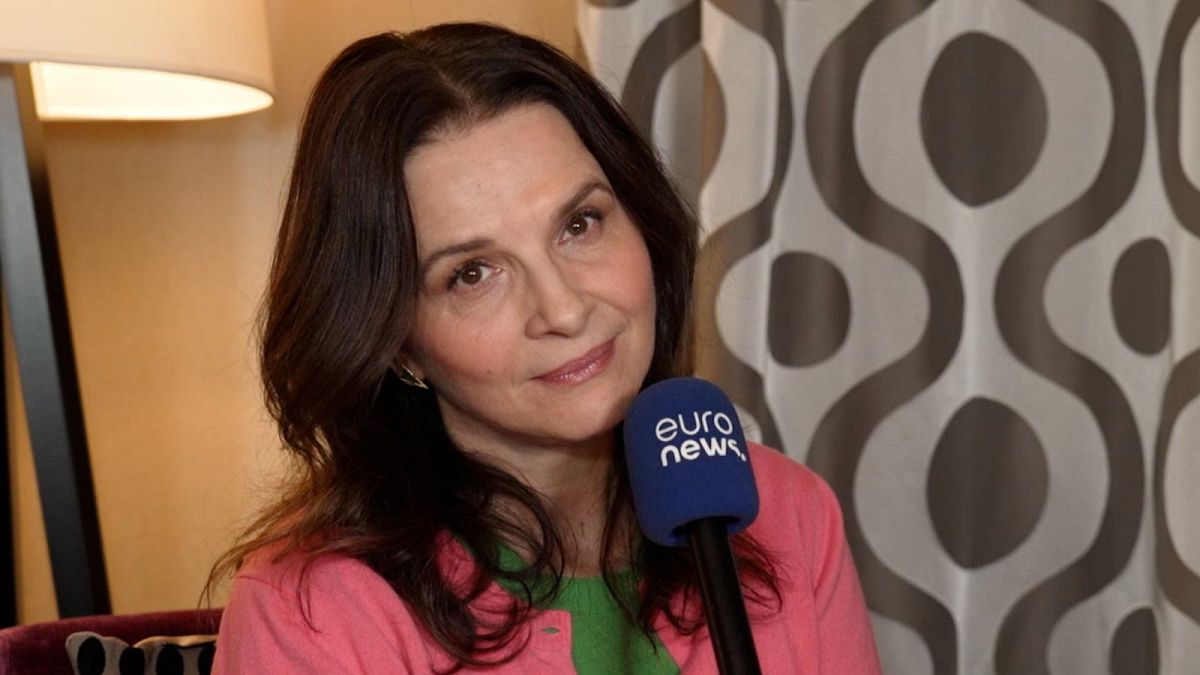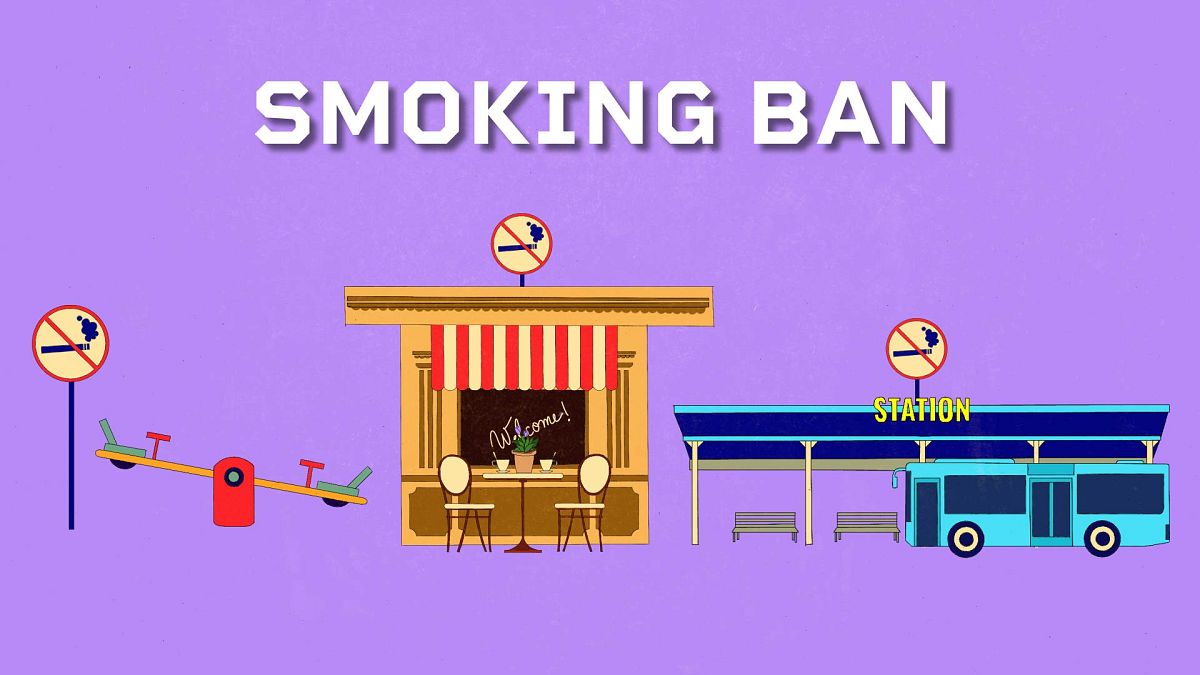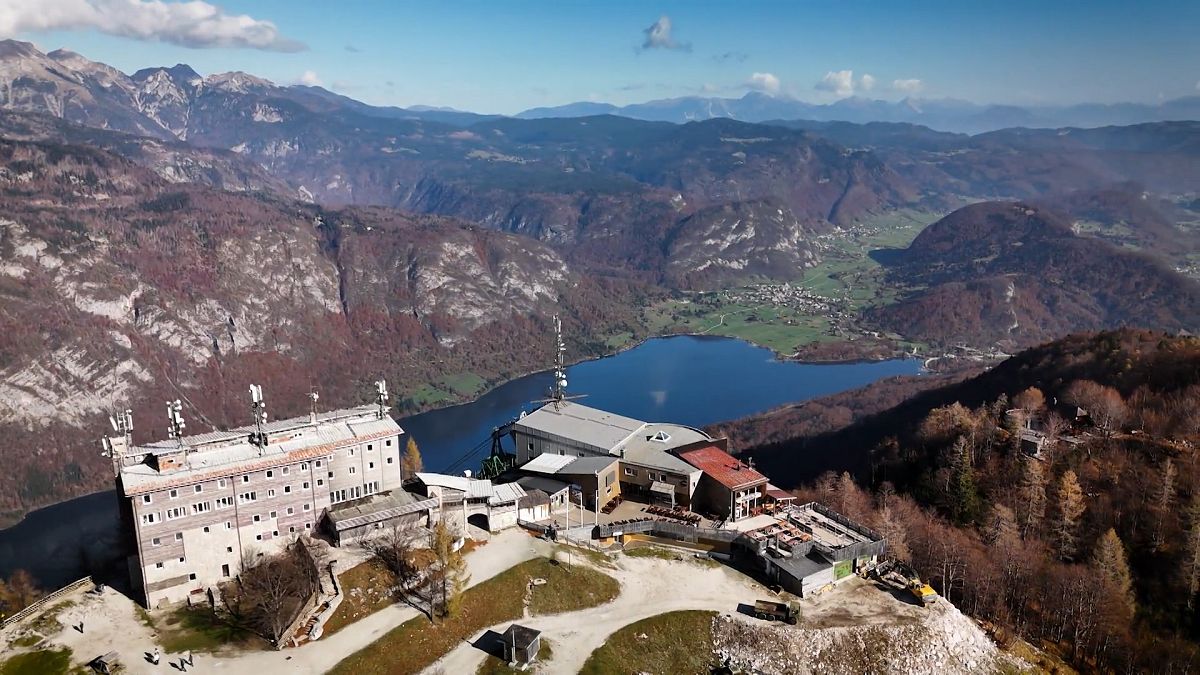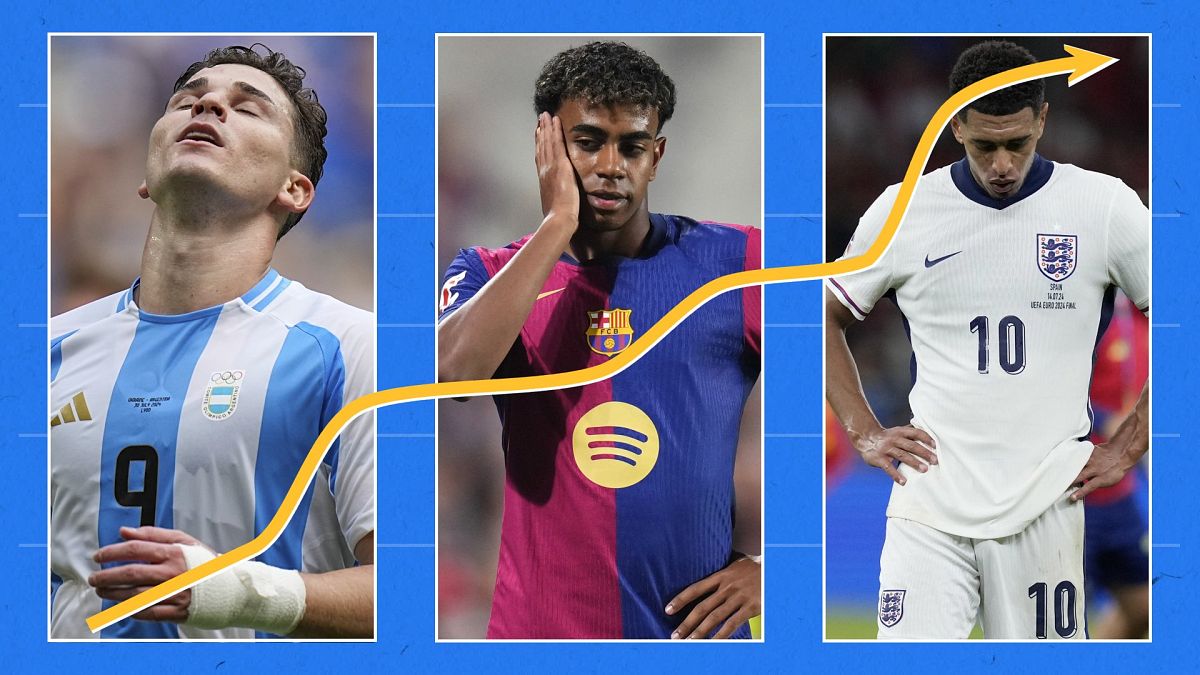‘Europe can count on Angola’ for energy, says President Lourenço
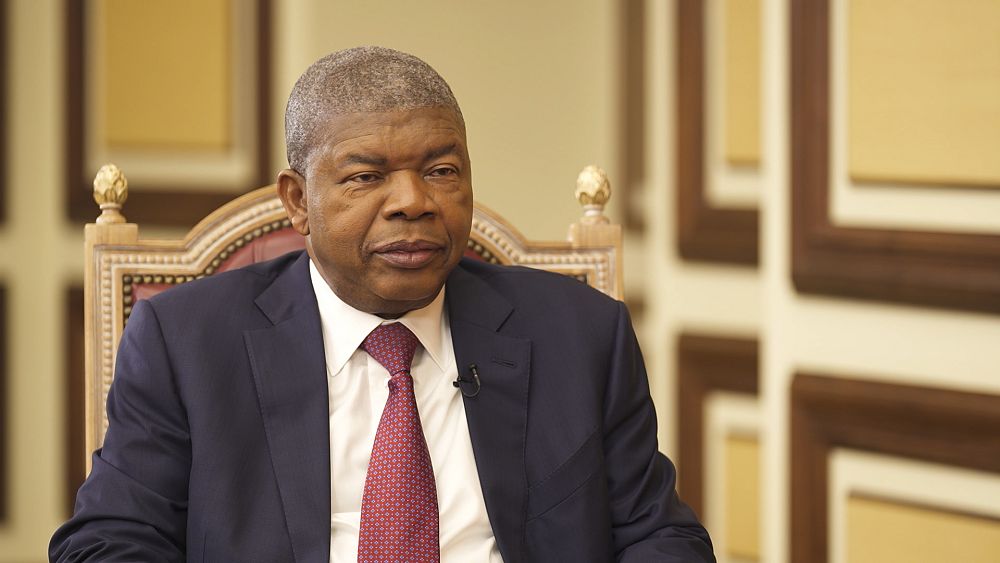
The impact of the war in Ukraine is being felt far beyond the European continent. In a bid to cut its dependence on Russian gas, Europe is keen to shore up its energy supply and look for alternative sources.
As the war in Ukraine passed its one-year mark, and following the visit of French President Emmanuel Macron and Felipe VI, the King of Spain, Euronews spoke to Angola’s President João Lourenço about the vision of Africa’s second-largest oil producer, and a potential supplier of natural gas to Europe.
War in Ukraine: What has been Angola’s position?
In two of the three resolutions adopted by the UN General Assembly, which were aimed at Russia, Angola abstained.
“Abstention is not disapproval. Abstention means abstention. It should be interpreted as such,” João Lourenço told Euronews.
“In the second resolution Angola voted in favour because the resolution was very concrete, it aimed above all to condemn the annexation of the four regions from the Donbas.”
“In the most recent resolution, Angola abstained. However, beforehand it took the precaution of trying to negotiate – if we may use that term – either the withdrawal or the easing […] of just one paragraph. I am referring specifically to the operative paragraph, as they call it, or P9, which referred to […] taking the aggressor to an international criminal court.
“It is not that this cannot be done, but we understand, and we know negotiation methods, that when you are negotiating you must always leave a door open.”
“We believe that the priority at the moment is to bring Russia to the negotiating table. We must do everything in our power to bring both parties, but especially Russia, to the negotiating table to achieve a lasting ceasefire and to negotiate peace not only with Ukraine but also with NATO,” Angola’s president added.
Working towards peace in Africa
João Lourenço has said that he is committed to contributing to the pacification of the African continent. In the case of the Central African Republic, the Angolan president advocated lifting the arms embargo on the government so that it could defend itself. Euronews asked him if he believed this is the only solution for peace.
“It is certainly not the only one. It is necessary that the country fulfils the Luanda roadmap. In some ways, it has begun to do so, but the process is not complete,” he said.
“It is, therefore, necessary to negotiate with all the living forces in the country, with the opposition in particular, at least that opposition that is in Central African territory. And give opportunities to other political actors to participate in the political life of the country.”
Regarding the East of the Democratic Republic of Congo, a severe humanitarian crisis has resulted from this war. At the Africa Union summit in Addis-Abeba, Angola, among other countries, made proposals to resolve this conflict.
“A new ceasefire must be reached. It is necessary, immediately after this ceasefire, to take the next step of quartering the M23 forces,” President João Lourenço explained.
“For this process to take place, the Summit concluded that there is a need for the deployment of the regional force, which is composed of several countries, namely Kenya, Burundi, South Sudan, Uganda and Tanzania.”
“The Addis-Abeba Summit asked Angola to establish direct contact with the M23 leadership in order to convince them to accept the ceasefire and the quartering of their forces. And we immediately set about fulfilling this mission that was given to us. And at this very moment, Angola is already maintaining contact with the leadership of the M23.”
Can Angola help Europe replace Russian gas?
The current geopolitical context has forced Europe to review its priorities, and the bloc is continuing to look for alternative gas supplies.
“Angola is an alternative,” João Lourenço revealed. “Angola, at the moment, produces more oil than gas, although we have some gas. But we have set up a new consortium for gas production. So, several multinationals […] are going to start exploring more gas in Angola.”
“We believe that the production of natural gas, non-associated gas, in Angola will experience a boom in the coming years and, therefore, from then on, Europe can count on Angola as an important supplier not only of gas but also of green hydrogen. We are already making contacts with some European countries for the production of green hydrogen.”
Angola still depends almost exclusively on oil. But one of the goals of Lourenço’s government is the diversification of the economy.
“We are doing well,” he revealed. “The non-oil sector of our economy is experiencing, let’s say, satisfactory growth. And we are going to continue along this path. But it will take some time before […] oil revenues move into the background. Today they are still the most significant, but the trend is reversing. There will come a turning point when the national GDP will be made up mainly of revenues coming from the non-oil sector.”
Angola’s ‘historic diaspora’
It is estimated that 12 million US citizens have Angolan ancestry – in what has been called the “historic diaspora”. But how can this connection be strengthened?
“We have begun to make contacts with some representatives of the African Diaspora in the United States. They have already made some trips to Angola, I mean to Angola and not just to Luanda. They are not limited to Luanda,” said João Lourenço.
“They are very enthusiastic. I am not talking about returning, but about establishing this connection, which has been somewhat interrupted over the centuries. So, from our side, there is this interest and we will give all the necessary support so that today the Afro-descendants maintain this connection with us, with the continent, in particular with Angola.”
Investing in Angola
On the subject of business investment in Angola, Lourenço told Euronews that the landscape is now much more favourable for entrepreneurs than before.
“It is much easier. And it’s not me who says so. It is the investors themselves. For the five years that I have been at the head of the country’s affairs, one of our concerns has been to create a business environment that is different from the one we inherited.
“One of the features of this better business environment is, without a shadow of a doubt, the fight against corruption. I cannot guarantee that there is no longer any corruption in Angola. In fact, there is corruption everywhere in the world. But what I can guarantee is that corruption in Angola today is no longer done with impunity.”
Europe-Africa relations
At the last African Union summit, João Lourenço and the Portuguese Prime Minister António Costa reportedly discussed boosting relations between Europe and Africa. Euronews asked Angola’s president what his country can do at this level.
“What can Angola do at this level? Tell the Europeans that what we want are real relations of cooperation, which sometimes does not happen, and we want to combat a certain paternalism that sometimes exists. And to say that we also have something to offer Europe, it is not only Europe that has capital, that has the know-how to offer our continent. We also have something very important to give in return. So the benefit of cooperation between our two continents is reciprocal,” he explained.
“What the European Union can do, and in some ways is doing, is to discuss with us as equals, the interest in North-South cooperation. So, to change some of the rules of the game.”
“It is clear that today our continent is decolonised in de facto terms, but even so, even decades after colonisation, international relations are still not fair[…] It’s not for nothing that we want, Africa wants a seat on the G20, it wants a seat, one or more, as a permanent member of the UN Security Council, precisely to correct these relations which to date we still consider to be unfair in some way.”
US and Angola: ‘Strategic’ partners?
The US Secretary of State, Antony Blinken, has said that Angola is a strategic partner. In December last year, Blinken and the Secretary of Defense Lloyd Austin met President Lourenço at the White House to reaffirm the importance of ties between the countries.
Euronews asked the president about the nature of the partnership between the two countries.
“In fundamental areas of the life of countries, namely in the field of security, I mean international security – Angola has something to say. And in the economic field, in the production of foodstuffs to feed the world. We have enough land and enough water. We lack the capital and the know-how to be a country that can supply food to… not Angola, but the world.”
One of Angola’s main objectives is the development of renewable energy. Last year, the United States announced plans to invest €1.8 billion in a photovoltaic system in the African country.
“We are not very far from reaching the goal we set ourselves. At present, 64% of the energy produced in Angola is no longer from polluting sources, 64% is hydroelectric energy, essentially hydroelectric energy, but it is also starting to be photovoltaic energy. Last year we inaugurated two large photovoltaic plants in Benguela province.
“We have a project planned for the east of the country and we have this major project with an American company that will produce and supply energy to four provinces in southern Angola. Our goal is, by 2026, to make the leap from 64 to around 70% of energy from clean sources.”
Source: Euro News


